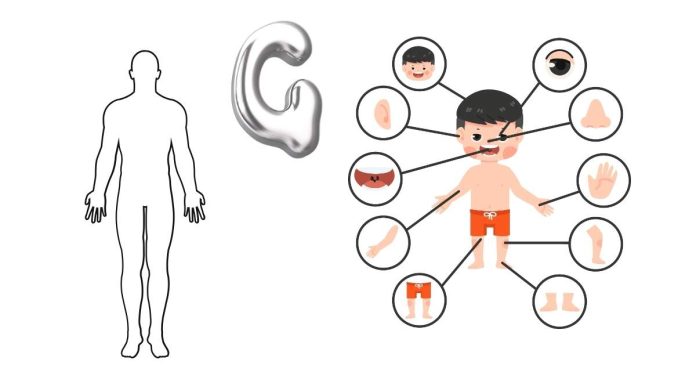The human body is a complex system made up of various organs and structures, each with specific functions necessary for overall health and well-being. Many body parts have names that are easy to identify, but some may be less obvious. In this article, we will focus on a body part that starts with the letter G — Gums.
Gums: An Essential Part of Oral Health
Gums, also known as gingiva, are the soft tissues that surround and protect the roots of the teeth. They play a crucial role in maintaining oral health by providing a seal around the teeth, protecting them from bacteria and infection, and supporting the teeth in their sockets. Gums are typically pink in color, though they can vary depending on a person’s skin tone and overall health.
Anatomy of the Gums
The gums are divided into two main sections:
- The Gingiva: This is the tissue that covers the bone that supports the teeth. It is firmly attached to the underlying bone and is what we commonly refer to when we talk about “gums.”
- The Marginal Gingiva: This part of the gums is located just around the neck of each tooth, creating a boundary between the gums and the teeth.
There are also two distinct types of gums:
- Attached Gums: These are the firm gums that are tightly bound to the underlying bone and do not move.
- Free Gums: These are the gums around the teeth that can move slightly. They form a collar around each tooth and can sometimes be seen when a person smiles or speaks.
Functions of the Gums
Gums serve several important functions in the body:
- Protection: Gums protect the roots of the teeth and the bone beneath them from bacterial infections, such as gingivitis or periodontitis, which can damage the teeth and lead to tooth loss.
- Support: Healthy gums help anchor the teeth in place, keeping them stable and preventing them from shifting or becoming loose.
- Maintaining Oral Health: Gums play a vital role in the body’s defense against harmful bacteria and food particles. Proper gum care can prevent tooth decay, gum disease, and other oral health issues.
- Aesthetic Appearance: The color, texture, and health of the gums can significantly influence the appearance of a person’s smile.
Common Gum Problems
Several issues can affect the gums, which may require medical attention or treatment:
- Gingivitis: Gingivitis is an early form of gum disease, often caused by a buildup of plaque on the teeth. Symptoms include redness, swelling, and occasional bleeding of the gums. If untreated, gingivitis can progress to more severe forms of gum disease.
- Periodontitis: If gingivitis is left untreated, it can develop into periodontitis, a more severe gum infection that affects the supporting structures of the teeth. It can result in tooth loss if not addressed.
- Receding Gums: This condition occurs when the gum tissue wears away, exposing more of the tooth. Receding gums can be caused by various factors, including poor oral hygiene, aggressive brushing, or genetic predisposition.
- Gum Infections: Infections in the gums can lead to abscesses, pain, and even tooth loss if not treated promptly.
Maintaining Healthy Gums
To keep the gums healthy and free from disease, consider the following tips:
- Brush and Floss Regularly: Brushing at least twice a day and flossing once a day can help remove plaque buildup, which can lead to gum disease.
- Visit the Dentist: Regular dental check-ups are essential for monitoring gum health and catching issues like gingivitis early on.
- Avoid Tobacco: Smoking or using tobacco products can damage the gums and increase the risk of gum disease.
- Eat a Balanced Diet: A healthy diet that is rich in vitamins, especially vitamin C, supports healthy gum tissue and reduces inflammation.
- Stay Hydrated: Drinking plenty of water can help maintain moisture in the gums, preventing dryness and irritation.
Conclusion
The gums, or gingiva, are essential structures that play a significant role in oral health. They protect the roots of the teeth, support tooth stability, and help defend against bacterial infections. Maintaining gum health through good oral hygiene practices, a balanced diet, and regular dental visits is crucial for overall well-being. Keeping your gums healthy can help prevent serious dental issues and ensure a beautiful, functional smile.


